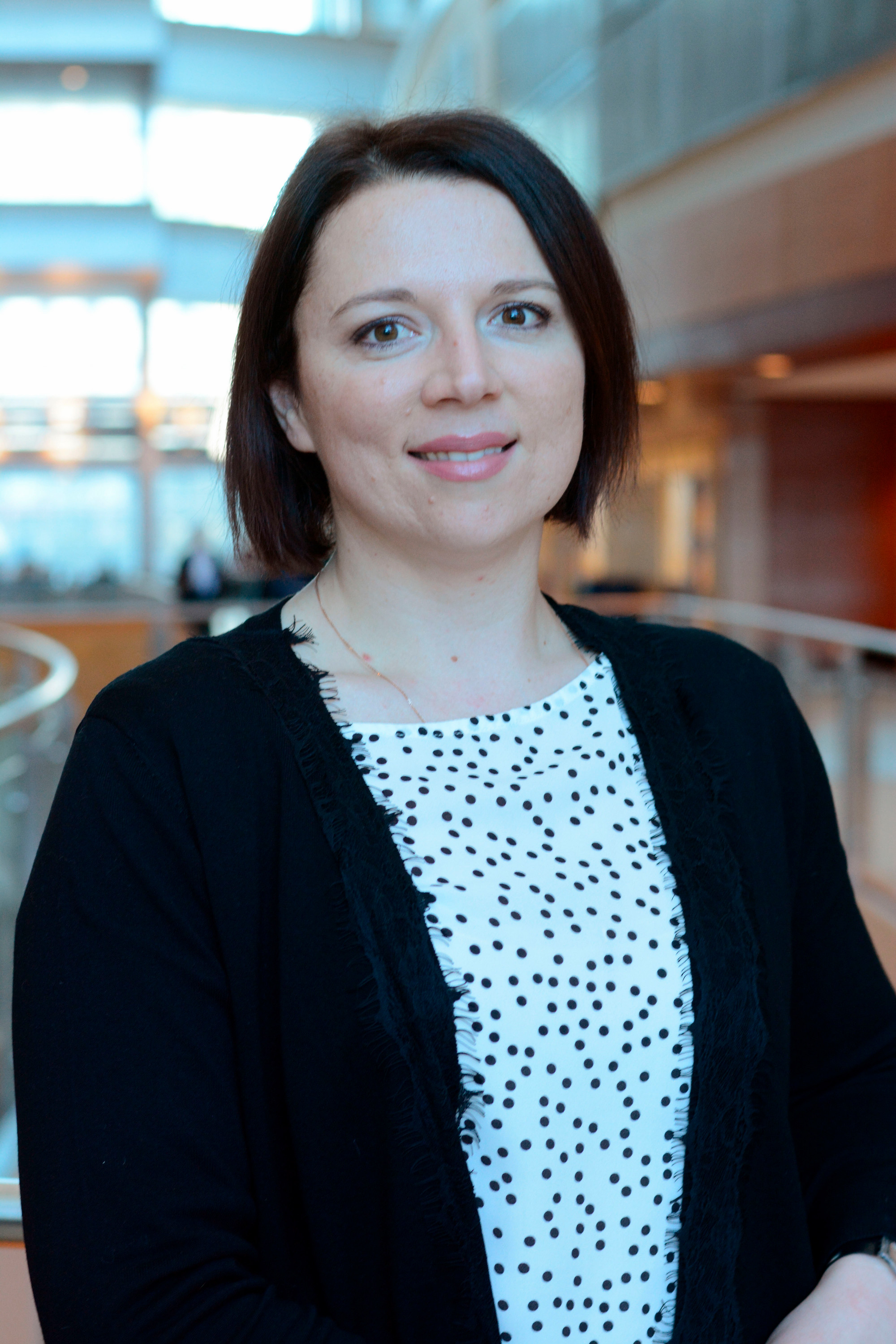Researcher studies how community pharmacists can help fill the gaps in primary care
3 December 2024

Tatiana Makhinova. Picture supplied.
Tatiana Makhinova is an assistant professor in the Faculty of Pharmacy and Pharmaceutical Sciences at the University of Alberta. She received a BSc in pharmacy from Voronezh State University in Russia, an MSc in pharmacy and a PhD in pharmaceutical sciences from the University of Texas at Austin.
Her research areas and interests include developing and testing innovative patient-centred pharmacy practices, evaluating the impact of pharmacy services on patient outcomes, and examining factors affecting medication adherence and health-care utilization.
We contacted Makhinova to learn more about her and her current research.
Please explain the focus of your research and why it's important.
With my research, I aim to improve health-care delivery for chronically ill patients, particularly in the area of respiratory health. I identify gaps in respiratory care and study how community pharmacists can help address these gaps. This includes ensuring that patients are on optimal therapy, receive important education and have access to the resources they need. Our health-care system has many inefficiencies, including difficulties in accessing primary care providers, so it is crucial to develop alternative models of care to prevent patients from being overlooked.
What impact is your research making or do you hope it will make in the future?
I hope that more patients with chronic obstructive pulmonary disease (COPD) can receive the care they need and that we will be able to demonstrate it with high-quality evidence. I hope that the policy decision-makers and payers (currently the Alberta government) can utilize the findings when making decisions. Alberta has been leading in the pharmacists’ scope of practice and although unique services reimbursed by the government have been available to the pharmacists for a while, we are still lacking real-world evidence of the value and financial benefits to our provincial health-care system. Recent changes to pharmacy service compensation may reduce the provision of clinical services by pharmacists, and I hope my research can help advocate for better support.
What part of your work do you find the most rewarding? The most challenging?
The most rewarding part of my work is the people — whether it is learning from the patients about challenges they have or health-care providers who improved their quality of life; working with colleagues and collaborators when we brainstorm ideas, go through various stages of research and meet at conferences; or working with students who always inspire me with their curiosity, creativity and fresh perspectives. The challenging part of an academic job is the constant desire to do more and needing more hours in the day. However, this challenge teaches us to be efficient and strategic with our time.
What first drew you to the field of pharmacy and pharmaceutical sciences, and then to your specific area of research?
As a child, I was fortunate to see the inside of a pharmacy because my mother was a pharmacist. I remember the large compounding room where technicians would weigh and package various powders, which planted a seed of interest for sure. I loved biology and chemistry in school, and I was fascinated during my high school organic chemistry class by the coding and information-carrying ability of nucleic acids. After pharmacy school, I worked with different specialists, and respirologists in particular, who drew my interest to asthma and COPD. Additionally, my curiosity about health-care organization and effectiveness led me to health-services research and pharmacy practice, where I remain today.
What's the No. 1 piece of advice you give your students?
As a student, it’s essential to stay open-minded because you can’t always know right away what your passion will be, where you will be happiest practising or who you’ll want to work with. For my graduate students, I emphasize the importance of building a strong foundation — research methods, understanding the area of inquiry and honing written and oral communication skills. It’s also crucial not to forget to enjoy your time at school — whether it’s meeting people in Toastmasters or other university clubs, building relationships with classmates or connecting with your professors. These connections will often become lasting friendships.
What is something your colleagues would be surprised to learn about you?
It might not be too surprising, but one of my recent hobbies is watching classic (often black and white) movies.